Voice of Experience: Monica Mandelli, Managing Director, Investment Management Division, Goldman Sachs
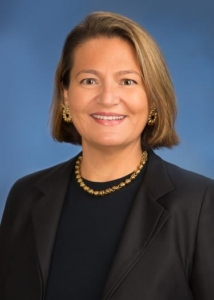 On a faded and tattered piece of paper taped to a wall in Monica Mandelli’s Manhattan office is the motto by which she lives: “La vittoria non e’ mai definitiva e la sconfitta non e’ mai fatale: quello che conta e’ il coraggio,” which roughly translates into “Victory is never forever and defeat is never fatal: all that matters is courage.”
On a faded and tattered piece of paper taped to a wall in Monica Mandelli’s Manhattan office is the motto by which she lives: “La vittoria non e’ mai definitiva e la sconfitta non e’ mai fatale: quello che conta e’ il coraggio,” which roughly translates into “Victory is never forever and defeat is never fatal: all that matters is courage.”
That piece of paper (and its message) has traveled with Mandelli from London to Harvard and from a small cubicle to the large office she now inhabits as a managing director at Goldman Sachs. Said Mandelli, “It encourages me to not become complacent when I win and never to give up when I’m struggling. It reminds me to wake up every day and fight. I’m very confident and relentless and it sums me up quite well.”
Mandelli was raised in a small town in Italy just outside of Milan at a time when women were not really expected to do anything with their lives other than get married and become housewives. But she knew from a very young age that she was destined for a different path.
“My mother taught me to read and write at 3 years old. But when I started elementary school, the other kids still couldn’t. So, from the beginning, I felt I was different (although not necessarily better or worse) and that feeling just stayed with me.”
Mandelli earned a degree cum laude in Economics and Social Studies from the prestigious Università Bocconi in Milan. Her primary goals at the time were to work abroad and to be financially independent. “I dreamed that I could show everyone that I could have it all – a family, the career.” She added, “I’ve always been a very ambitious woman. And I’ve always thought women were undervalued and knew it was important for a woman, if she had the desire and capability, to try to have a big career.”
Because she spoke English—her father was, in her words, “obsessed” with foreign languages—she was able to launch her career at Merrill Lynch’s London office. “[The job abroad] was my ticket to freedom,” she said. “It was great for me because I felt independent and I had a job that paid me what I thought at the time was a significant amount of money. It was truly empowering.”
She adjusted quickly to life in London. “My analyst class in London already had Italians, French, Germans… I was surrounded by foreigners like me.” And she loved the work. “It was challenging and intellectually stimulating. I really enjoyed working with successful, C-level clients and learning from them. And they actually listened to the advice I gave even though I was young. It was very thrilling.”
Working in America
“I came to U.S. for first time when I was 10 years old. Everything was so big and dynamic compared to my small town in Italy.” Mandelli recalls, “I declared to my parents, ‘I’m going to live here someday.’” So, after a few years working as an analyst in the Square Mile, she made her dream come true by moving to the United States to pursue an MBA at Harvard Business School.
Although she planned on a career in finance, she tested the waters in other areas of business, doing a summer internship at top consulting firm McKinsey & Company in New York. ”I loved it but, at the end of the summer, I realized that consulting was not for me. I didn’t like that, at the end of a project, you would deliver a presentation with recommendations but never know if your recommendations were implemented. [I like finance because] when you do a deal, you ultimately see the results of your efforts—you sell a company or you do an offering and raise large sums of capital and the deals actually change the path of your client’s company.”
She joined Goldman Sachs upon graduation from Harvard in 1998. In the decade since, she’s risen through the ranks, building her career in sectors ranging from telecom to media to technology. At the end of last year, she became the head of the Strategic Relationship Management Group within Private Wealth Management.
Of the new position, she said, “It is an exciting opportunity because asset management is more stable than investment banking right now and more entrepreneurial in general. And running a group and building a business, I get to think strategically about how to leverage knowledge and relationships to get more wealthy individuals as clients. It is definitely an area of growth for the firm.”
Telling Women about the Shortcut through the Forest
Mandelli was thoughtful when asked about the challenges facing women in the industry. “When you start your career, it is like you are in front of the forest and your job is to cross it. Guys who quickly bond with senior guys (and the senior people are mostly guys) have all the advantages of informal networking. In other words, they are given a map and told about the shortcut through the forest. Generally, women are not [doing that kind of] bonding and building networks and are therefore facing the forest without a map. They don’t even know a shortcut exists.”
She continued, “The biggest barrier is that the industry traditionally has been and is still male-dominated (as opposed to other industries where women have made tremendous inroads). Between us and the glass ceiling is a thick layer of men. Without meaning any harm, men naturally support other men. And women are highly scrutinized using criteria such as their motivations outside work, like marriage and kids, so there are fewer of us moving up in the ranks. In order to neutralize the issue of gender, we need to build a critical mass of senior women who can support and mentor junior women and help them climb the ladder.”
She personally spends a significant amount of time coaching junior women within Goldman Sachs, and is now building on her prior work as co-leader of the investment banking division’s Women’s Network in her latest role on the steering committee for the firm-wide initiative to attract, retain and promote women.
Mandelli believes that at least part of that effort will have to focus on showing women that they can be successful both at work and at home. “Women often self-select out of the industry because of a fear that in this industry there is no balance between work and life. A lot of women after business school go through the grind of the first few years and, by the time they become senior VPs, they start to think about having a family and how they are going to juggle, using their experience to date to judge [the needed time commitment]. They end up leaving at that crucial level and don’t stay to try to become managing director, when they would have more control over their schedules and when it would be easier to strike a balance.”
She added, “So one big thing that we [as management] can do is to give the [up-and-coming women] more examples of women who make it through the ranks and who have a family and are successful mothers.”
With an investment banker husband and 3-year old son, Mandelli is certainly a great role model, gracefully managing to achieve a workable balance between her demanding career and home responsibilities.
“My priorities are my family and my career,” said Mandelli. “Every day I work, I also try to carve out quality time with my son. I also try as much as possible to do day trips instead of overnight business trips. And, on weekends, I dedicate 100% of my free time to my family, with Saturday night reserved as a date night with my husband once our son goes to bed.” But, she admits, some things do get excluded with her busy schedule. “I have no time consuming hobbies and I also don’t see friends very often.”
Said Mandelli, “It is all about organization. We tackle the family schedule the same way we tackle our business schedules. For me, that is a balance that works.”
Giving Back
“You feel in this job to be at the crux of what happens in the world. We are tackling important problems every day. We put the thought leaders together with the money they need. In other words, we find the money for the people to finance ideas that change the world.”
She added, “Sometimes, because we are in the middle of all the big deals, we forget the reality of the rest of the world. But people at Goldman Sachs do a good job of giving back through Community TeamWorks and our programs like 10,000 Women. And we need to continue to make sure that our people, when deep in the daily grind, have the opportunity to give back.” Mandelli does her part, sitting on the advisory board for Good Shepherd Services, a non-profit which helps 20,000 underprivileged kids every year get a high school education.
All that Matters is Courage: Advice for Women in Finance
Mandelli emphasizes the need for a big goal, whether it is to become a managing director at Goldman or to be the best trader of a certain sector. “It is very easy at the beginning of your career when you are in a cubicle late at night, tired and discouraged, to forget about the big picture and just give up. It is at those times, on those bad days, that you must have a big long-term goal so there is a light at the end of the tunnel.”
Mandelli also underscores the importance of checking in with yourself on a regular basis to make sure you are on the right track. “One of the first pieces of career advice I got was from Suzanne Nora Johnson, who used to be the most senior woman at the firm and one of my mentors. She told me to that you need to reassess your career on a regular basis, at least every two years. You need to look at yourself in the mirror and ask the tough questions like: Is the job still challenging me? Is there an opportunity to move up? Am I in line for the next promotion? Do I still like what I am doing? If the answer is yes, I redouble my efforts.” She usually does this at year-end, “the same way people do New Year’s resolutions.” She added, “I make sure that I still love what I do.”
She suggests that, to stand out from the crowd, you should figure out what makes you unique and “turn up the volume.” She explained, “When I started, I was a little worried because of my accent. I had a bit of a chip on my shoulder; I was even thinking of going to a school to erase the accent because I was so ashamed. But a coach at Goldman said that people have a longer attention span when talking to someone with a foreign accent. It makes you memorable.” She laughed, “So now I don’t care. And I get away with a lot because of the accent, everyone remembers me.”
Mandelli, who is now the most senior Italian woman on Wall Street, stresses that perception is reality. “It took me a while to figure out that you cannot solely rely on putting your head down, doing your work well and going home. You need to step up and courageously market yourself. You need to make sure people are fully aware of what you are contributing.” She added, “You need to make sure that people know who you are.”
By Pamela Weinsaft (New York City)


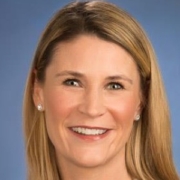
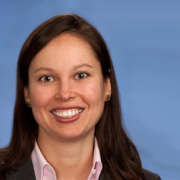
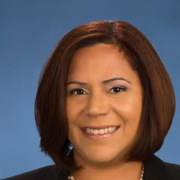
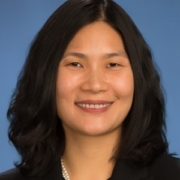
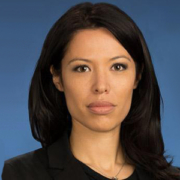
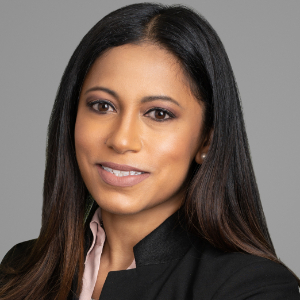

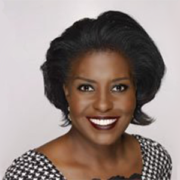

Thank you for posting this article, and thank you to Monica Mandelli for helping to carve the path for women in finance. I am an entrepreneur and mother of a toddler wanting to jump into the world of finance. I have been wondering about all of the issues facing women, and particularly mothers, in the male-dominated world of finance. Reading this article gives me encouragement. I am glad to know there are female role models in the industry who have succeeded in “doing it all.”
The key to all this is being a good person in general. Thank you for being Monica.